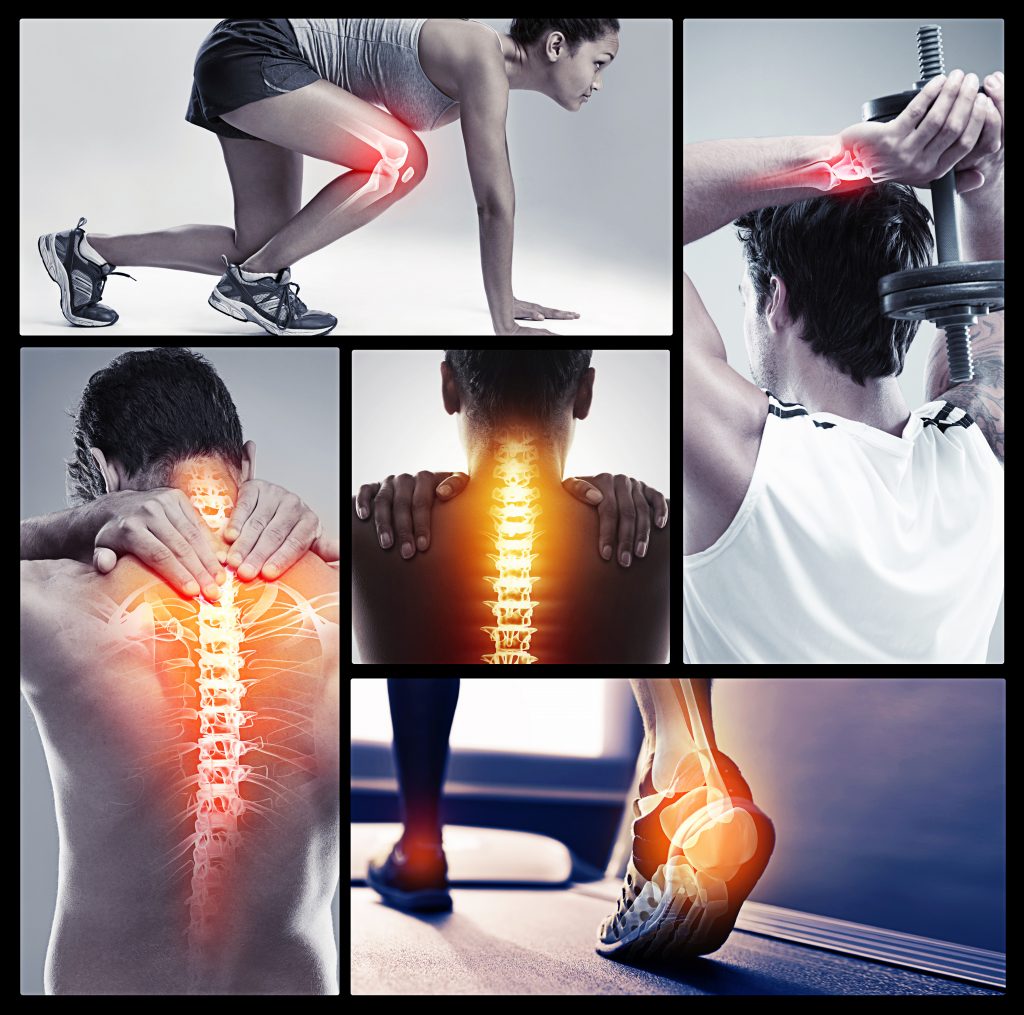I’ve hurt myself playing sport – what next?
With the winter sport season well and truly upon us, we are seeing more sports-related injuries here at the clinic. Obviously, the sooner you can get your injury assessed by your physio, the better, but what if the injury occurs on a Saturday or Sunday and the physio is closed? Here are a few tips and tricks to get you through the weekend.
For acute injuries, in most cases it is best to follow the ‘RICER’ protocol and avoid ‘HARM’ful activities in the first 72 hours after an injury which will minimise bleeding and swelling. It is also important not to use anti-inflammatories such as ibuprofen in the initial 72 hours as this can slow healing, but if needed for pain relief, paracetemol is safe to take.
RICE protocol
Rest – it is important that you abstain from aggravating activities as excessive activity can cause increased inflammation, swelling, bruising or bleeding.
Ice – ice should be applied for 10-20 minutes every couple of hours to the injured area to assist with control of pain, swelling and bleeding
Compression – compression of the area, with either compression garments, bandaging or tape can also assist in reducing swelling and bleeding and will often make it more comfortable to get around
Elevation – elevating the injured area above the level of the heart will also help to reduce swelling and bleeding
HARMful activities
Heat – heating the injured area in the first 72 hours can increase the bleeding, swelling and inflammation. There is no need to heat after applying an ice pack as the increase in circulation to the injured area will heat back up quite quickly
Alcohol – alcohol is a vasodilator (increases the size of blood vessels) so will also increase any bleeding or swelling
Running – this refers to any form of exercise which gets your heart pumping as we don’t want to increase blood flow to the injured area
Massage – as nice as it may feel to rub and injured muscle, this can actually increase bleeding and swelling in the area if done in the first 72 hours directly over the injured area
Whilst the techniques above generally cover most acute injuries, below are a few more injury specific tips:
Muscle contusion (Corkie)
Someone’s knee connected with your thigh in a tackle? That immediate pain you feel is a muscle contusion (bruise) and if the pain doesn’t subside within a couple of minutes or begins to worsen, it is best not to try ‘play through the pain’ as this can cause more bleeding which will leave you in a world of hurt the following day. These injuries respond well to the RICE protocol, but you want to ice the muscle in the position of most stretch it can tolerate, e.g. with a thigh cork having the knee as best as is comfortable.
Muscle strain
Sprinting past an opponent and feel your hammie go? These injuries also require you to leave the field of play and apply the RICE protocol immediately. However, you do not want to stretch the muscle in the first 72 hours as this can exacerbate the strain. Gentle active movements of the limb are fine but not held static stretches, particularly those using another limb or body weight to apply force.
Ankle sprain
Rolled over on your ankle? These injuries also respond well to the RICE protocol. It can be helpful to bandage the ankle to provide a little more support in the initial stages. If you are unable to put any weight on the leg after a couple of hours, or if there is an obvious deformity, there could be a fracture present, which needs further investigation to confirm.
Concussion
Seeing stars? If you have any sensation of dizziness, confusion, blurred vision or headache after a knock to the head, you could have a concussion. We are starting to understand the long term detriment of repeated concussions, so it is very important to cease play if you are at all worried about your head. You should not take anti-inflammatories for any headache, but paracetemol is okay. You should have someone with you for the next 24 hours to ensure that you are ok. If your symptoms start to deteriorate, it is very important to have yourself assessed professionally immediately, whether that be by your Dr or at the emergency department.
Back pain
Bent down to tie your shoelace and now you can’t stand up? Most people will experience at least one episode of back pain in their lives. Back pain is a little different to other acute injuries as heat can be used to treat the areas of muscle spasm, however ice can still be pleasant over the back itself. Unlike the other injuries, gentle activity is actually encouraged to assist with reducing symptoms and ibuprofen can be taken if recommended by your chemist.
Final thoughts:
- Stop any activity which is making your symptoms substantially worse, even if it has been recommended by a health professional
- Seek medical assistance if your symptoms worsen and you are unable to manage the pain yourself at home, you become unwell, there is obvious deformity present or you have any other concerns
- Don’t panic – most of these injuries are very treatable by your physiotherapist
- Don’t let fear of injury stop you from getting out there and enjoying yourself!
Our clinic at Earls Court will be running an acute injuries clinic on Monday’s commencing in the next few weeks. Keep an eye out for further info!
Author: Annabel Hawker

